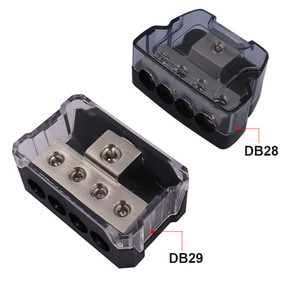Understanding Engine Outlets
Engine outlets are integral components within various industrial, automotive, and mechanical systems, serving as a critical interface for exhaust or air exchange. The design and functionality of engine outlets can significantly impact performance, efficiency, and the longevity of machinery. In a world where every component must work in harmony, understanding engine outlets is fundamental for any engineer or technician.
Types of Engine Outlets
Engine outlets come in a variety of designs, each tailored for specific applications and performance requirements. Here are some common types:
- Exhaust Outlets: Used in internal combustion engines to expel exhaust gases, ensuring efficient performance.
- Intake Outlets: Designed to optimize airflow into the engine, enhancing combustion efficiency.
- Centrifugal Outlets: Commonly used in turbines and compressors, these outlets improve the aerodynamics of air movement.
- Manifold Outlets: These are critical in distributing air or gases to multiple engine components.
Applications of Engine Outlets
The applications of engine outlets span across numerous industries, making them versatile components:
- Automotive Industry: Engine outlets are essential for vehicles, impacting fuel efficiency and pollution control.
- Aerospace Sector: In aircraft engines, optimizing airflow through engine outlets is crucial for fuel efficiency and safety.
- Industrial Machinery: Used in generators and heavy machinery, they play a significant role in emissions control and operational efficiency.
- Marine Applications: Engine outlets in boats help in exhaust emission management, contributing to environmental safety.
Features and Advantages of Engine Outlets
Engine outlets offer distinctive features and numerous advantages that contribute to their necessity in any engine system:
- Improved Efficiency: Optimal design of engine outlets leads to better airflow and heat dissipation, improving overall engine efficiency.
- Durability: Engine outlets are manufactured from high-quality materials, ensuring longevity even under extreme operating conditions.
- Customizability: Many engine outlets can be tailored to meet specific performance needs, accommodating modifications for increased power or efficiency.
- Noise Reduction: Some engine outlets are designed with features that minimize exhaust noise, providing a quieter operation.
Conclusion
Incorporating the right engine outlets into any machinery or vehicle is crucial for optimizing performance and ensuring longevity. With various types available, tailored designs, and a wide range of applications, engine outlets are indispensable in the multidisciplinary environment of modern engineering. Understanding the function and benefits of engine outlets can aid professionals in making informed decisions that elevate their operational standards.




























